For Jeannette Muñoz, films do not end when they’re finished
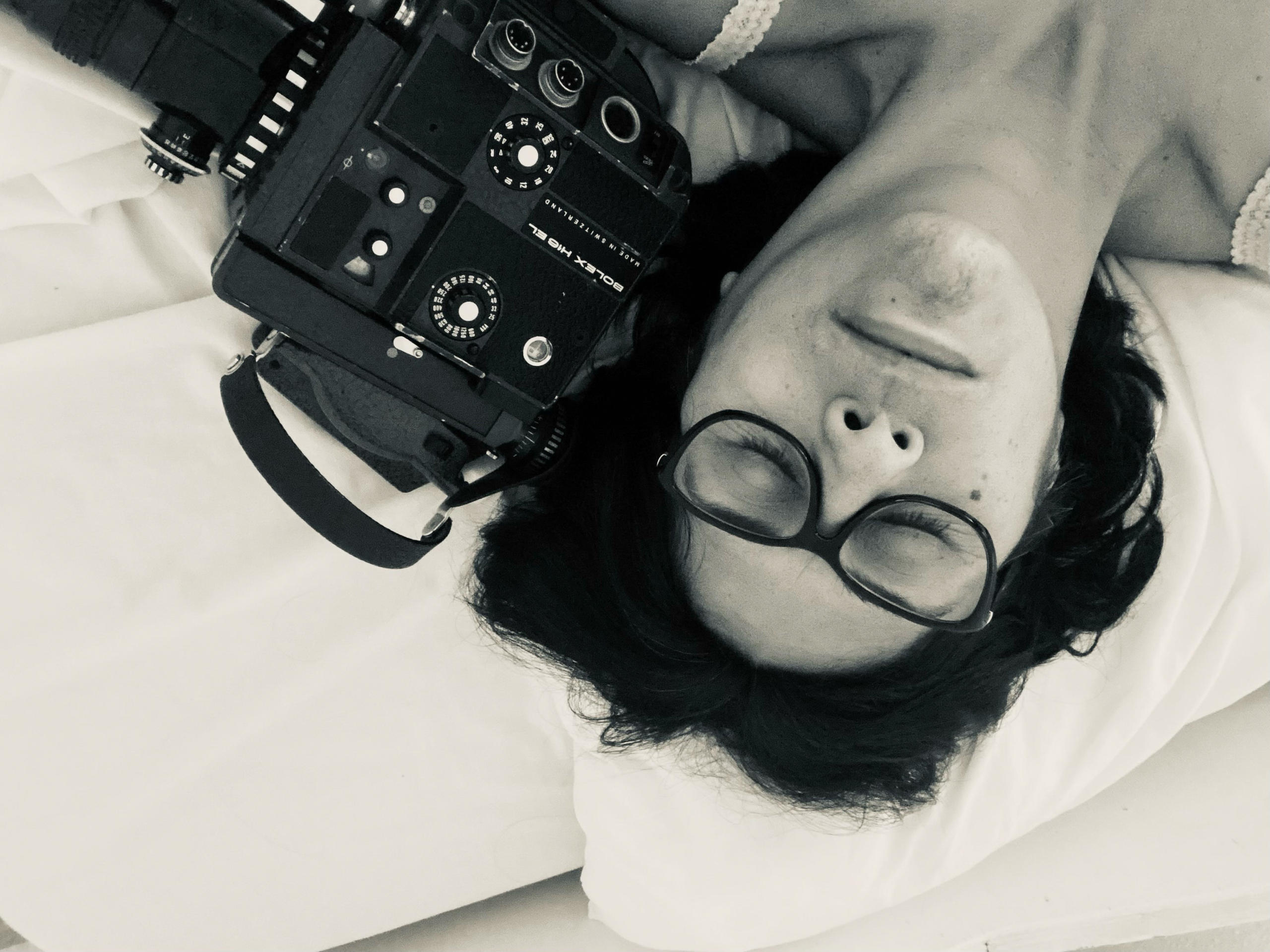
Zurich-based Chilean filmmaker Jeannette Muñoz is not a celebrity, but in film circles she is widely considered one of the most innovative names of experimental cinema of the past two decades. She speaks to SWI swissinfo.ch about her creative process and how she integrates nature into her work.
Born in Santiago in 1967, Jeannette Muñoz External linkstudied Visual Arts at the University of Chile before accepting a scholarship in Paris during the 1990s. She was then predominantly working with photography.
In her first experiences with film, she used a portable Super 8 camera to make animations, documentaries and whatever else she could explore. It wasn’t until 2001, when she began using a Bolex 16mm camera, that she developed her own authorial style.
The lighter and more versatile camera allowed her to propose new ways of observing the action of time in specific ecological environments.
It was then that she decided to return to Chile to film the neighbourhood she grew up in in Santiago, El Cortijo. That was the beginning of what she calls open-process work: the shooting of a film doesn’t follow a pre-determined schedule, many of her works are ongoing projects.
Back home, to and fro
Filming her childhood environment came naturally to her. “I kept thinking of what I had left behind when I emigrated to Europe, so everything I filmed had an autobiographical nature: my street; the people I had always known. This is how my first open-ended project was born on which I have been working for more than 20 years,” she says.
“I started filming and the material was accumulating. At first, I wasn’t worried about how to exhibit it. I had many forms in mind for my films and many ideas of how to show them.” In 1998, Muñoz moved to Switzerland, but she has never stopped travelling to Santiago.
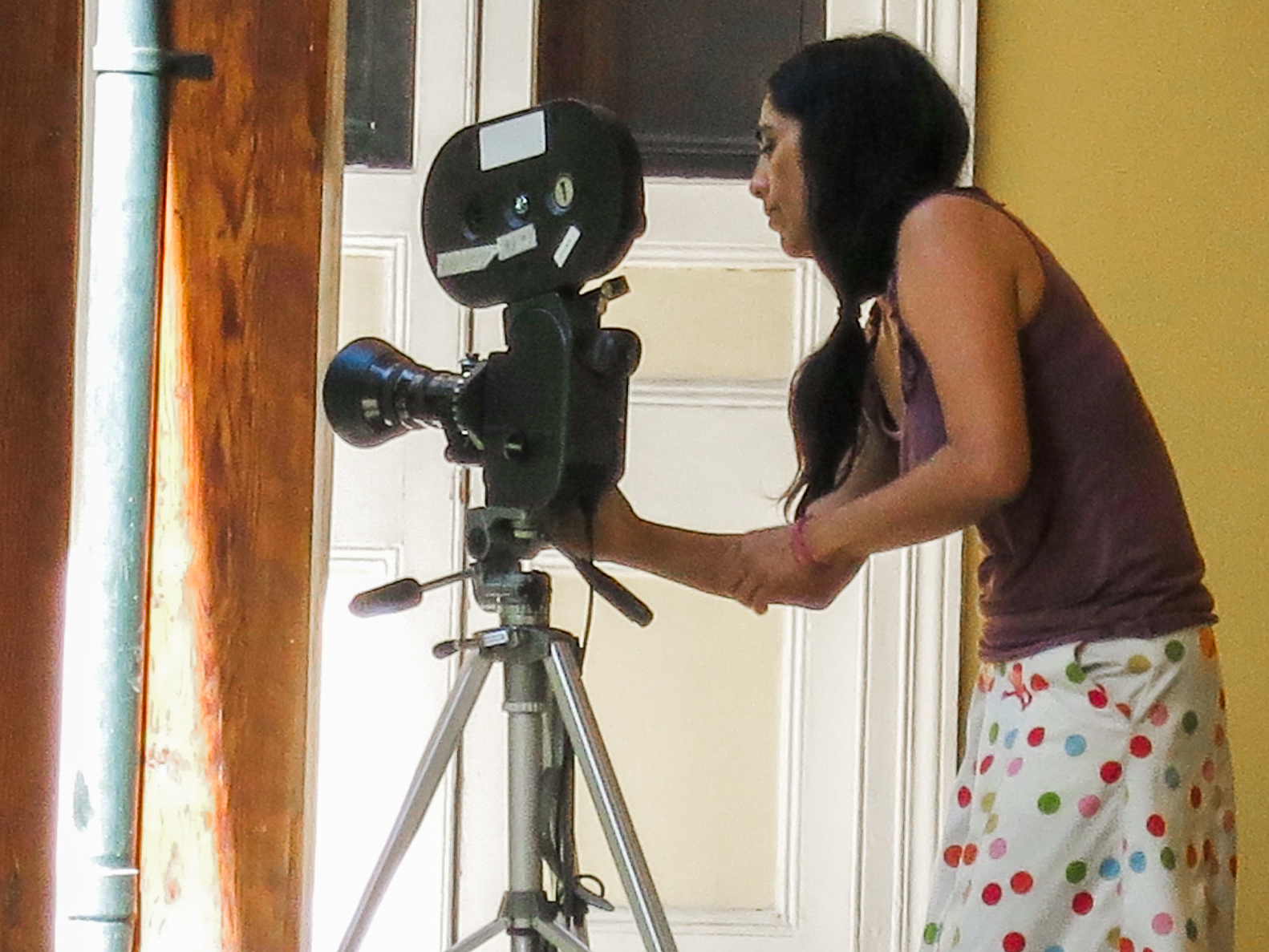
Her films gave birth to two series, Envíos (Dispatches) and Puchuncaví. These comprise several short fragments, of around three minutes each, collected over the years. They are constantly fuelled by new material. As such, the films are in a constant open-process and can be exhibited in different ways and lengths.
The Envíos series began in 2005. It is composed of short films shown as letters addressed to her family and friends. This project already has 34 episodes.
“Each Envío has a special story and is linked to the person who receives it,” Muñoz explains. “The series is also autobiographical. It’s a memory, it’s a conversation, it’s a place that reminds me of that person. The most important thing is that they are dedicated to someone close to me who I care about. I lean towards open forms because it is the closest to the absence of form.”
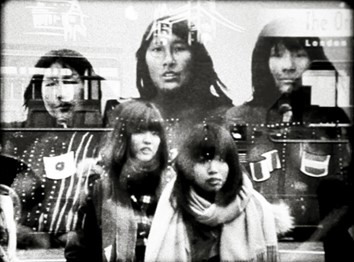
Closing circles
Between 2011 and 2012 Muñoz worked on two short film projects made in a more traditional way, that is, not in her open-process method. Her film Villatalla (2011) documents a remote village in Liguria, Italy, where only a few inhabitants still linger and jobs are scarce. Social life is slow and surrounded by nature. The villagers are elderly and activity in the olive plantations had at that time decreased to the minimum.
“It is the last town in one of the ravines of the Ligurian Alps,” she says. “Up there you are far away from everything. I think there are still many places with these characteristics, and the propensity is for them to become tourist sites. Not traditional tourism but rather tourism that seeks precisely that remoteness. I understand the distrust of people in Villatalla.”
From the Ligurian Alps, Muñoz moved on to Strata Natural History (2012), a personal journey that looks at the history of a group of Kawéskar, an indigenous people from Patagonia who were exhibited in human zoos across Europe at the end of the 19th century.
The last stop of the exhibition was Zurich in 1882, where most of the Kawéskar already affected by diseases finally died. The film combines images of visits to parks, museums and zoos in Berlin, captured by Muñoz, along with violent photographs from the archive of the Berlin Society for Anthropology, Ethnology and Prehistory.
“I set out to look for the persistent colonial traces in Berlin. In this case photographic archives and ethnology magazines from the late 19th century,” she says.
“The tour of the city showed me that colonialism is an ideological force and a way of seeing the rest of the world that is still present in the city. I think it is important to show that colonialism is not in the past, but in the present.” The film aims to integrate these elements into contemporary Berlin.
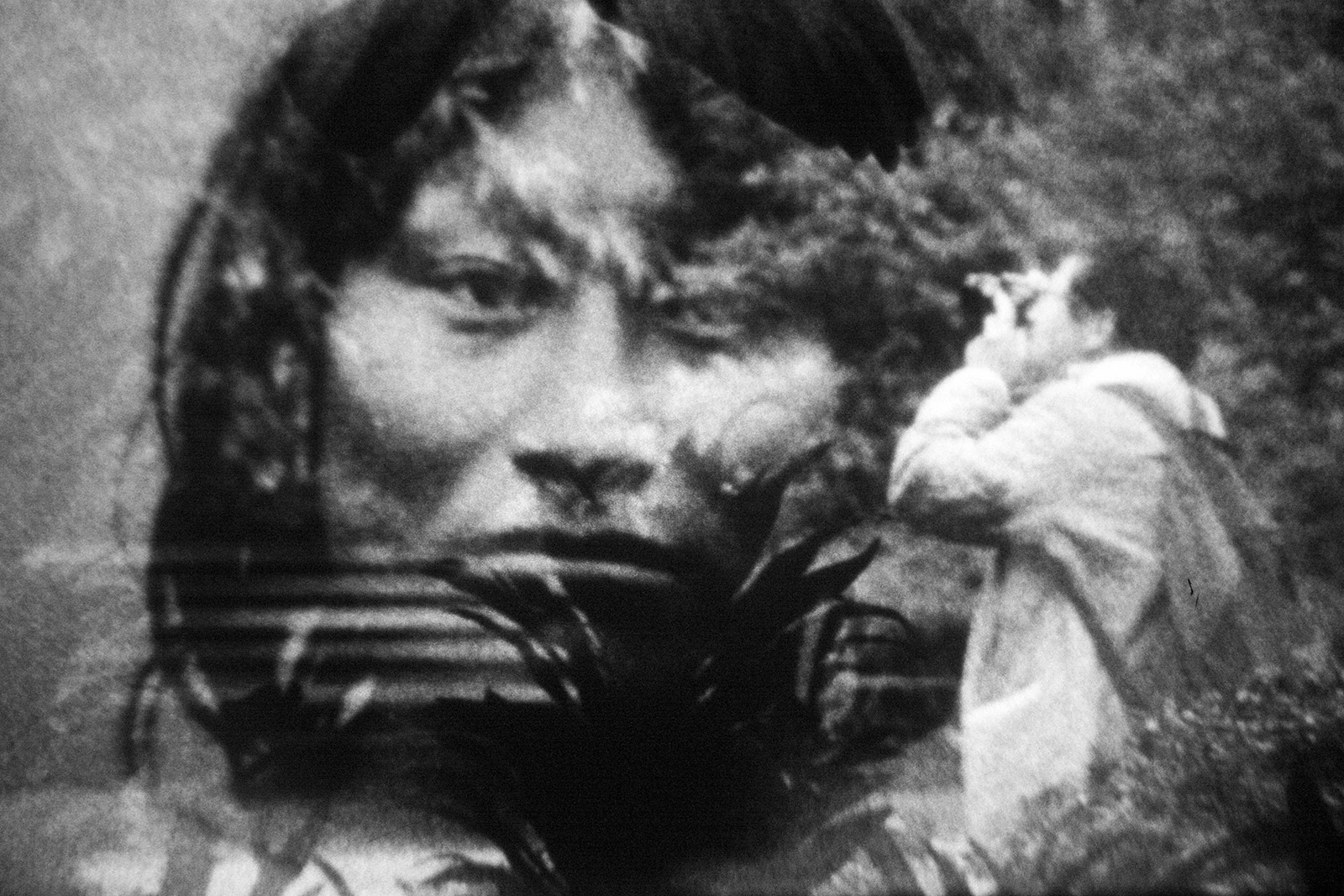
Precarious nature
Puchuncaví, started in 2014, is another open-process film focused on the traditional Chilean beach of Puchuncaví, which is currently devastated and polluted by industrial and port development in the area. The beach is also widely used by bathers, surfers, tourists and animals.
The accumulation of fragments reveals many simultaneous layers perceived by Muñoz in the location. Some recent parts were shot in Switzerland, such as birds unable to nest due to boat traffic or the construction of an art piece commissioned by luxury apartment owners.
Muñoz exposes with her gaze these invasions of the post-industrial landscape over nature’s realms with subtle signals of the increasing precariousness of what’s left of wildlife in the urban space.
As she shows SWI swissinfo.ch a fragment filmed entirely in Switzerland, she comments that “it is linked to Puchuncaví as an underwater portal, from the sea to the lake. Even in lakes in this territory, small environmental disasters occur. The birds you see in that fragment never manage to make their nest. The waves produced by boat traffic and storms prevent the pair of birds from protecting their eggs and they end up at the bottom of the lake every year.”
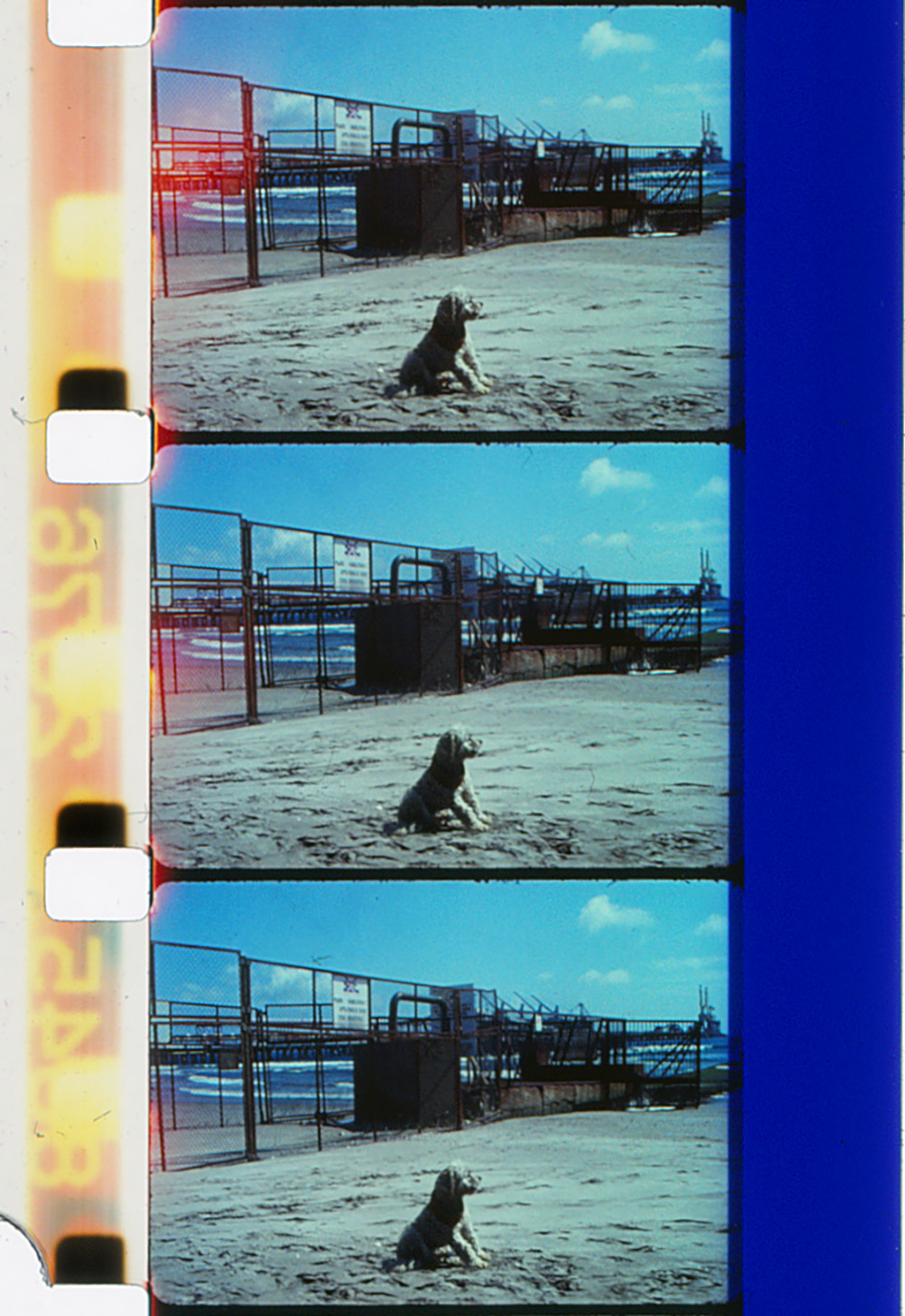
The decision to include Switzerland in the Puchuncaví series elevates the project to a level of reflection of contemporary ecological crisis as whole. The film series can now go anywhere maintaining its heart in Chile, as the personal filmmaking style suggests.
“I think that living in Switzerland clarified for me what it means to live in a country that lives off the extraction of raw materials directly or indirectly, pocketing the profits. Enjoying a clean environment is also part of these benefits.”
Muñoz’s attentive eye finds in the landscape motifs for historical and existential reflections.
“The landscapes speak,” she says. “They speak through their structures; you can see their nuances. The traces and echoes that they contain speak. People also speak for them because they are part of the landscape. Trees tell stories. The infrastructure that is still in function, those that stopped working, those that have been abandoned, all of them speak.”
When Muñoz keeps returning to a certain place, “it becomes magical, I begin to see and experience incredible events. The dogs, the pelicans, the rheas, etc. speak to me. The corners and the waves speak. I just film and collect what I find. That’s why I film places for long periods of time because I want to go beyond the superficiality of the first encounter. I think places deserve a lot of time”.
An exhibition of Jeannette Muñoz’s film and art works will take place at the Helmhaus cultural institution in Zurich. It will run from April 18 to June 16, 2024.
Edited by Virginie Mangin

In compliance with the JTI standards
More: SWI swissinfo.ch certified by the Journalism Trust Initiative
You can find an overview of ongoing debates with our journalists here . Please join us!
If you want to start a conversation about a topic raised in this article or want to report factual errors, email us at english@swissinfo.ch.